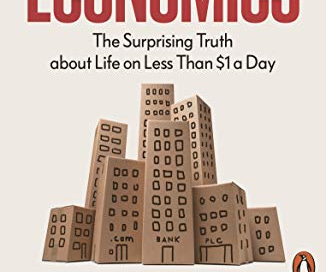Are we really helping the poor?
Everything you know about how to eradicate poverty is probably wrong.
Poor Economics: A Radical Rethinking of the Way to Fight Global Poverty
by Esther Duflo and Abhijit V. Banerjee
Grade: 94
This book opened my eyes about the real causes of poverty and the often flawed ways in which leaders across the world seek to remedy it. The authors, Abhijit Banerjee and Esther Duflo, both of whom are MIT economists, are two of the world's leading experts on development economics, which focuses on improving fiscal, economic, and social conditions of developing countries.
With their immense knowledge—they shared a Nobel Prize with Michael Kremer for their work in 2019—they provide a nuanced, novel, and insightful look at the lives of the poor.
One of the most important takeaways from Poor Economics is that the poor are not simply passive victims of their circumstances. Instead, their research shows the poor as rational actors who make choices based on the limited information and resources available to them.
Maybe the most startling observation, shared throughout the book, was how, across the world, the poor in aggregate have enough food and resources to live a better life, but the choices they make typically exacerbate their living conditions and thus their lives overall.
For example, instead of using their disposable income to invest in affordable fertilizer to increase the crop yield for the following year, the poor are more likely to spend the money on higher priced food. Duflo and Bannerjee argue for the need to understand these choices in order to design effective policies to help the poor escape poverty.
Said Duflo during a 2016 lecture: “Poverty is made of multiple angles. It's not just lack of money… it's also lack of education, lack of health, lack of information, lack of political inclusion and awareness, et cetera... “If you just fix the infrastructure and nothing touches the customer, then the changes will be much less likely to stick because there's not going to be a constituency of people who're going to support you.”
Poor Economics is a must-read for anyone who wants to understand the true nature of poverty and how to fight it. I highly recommend it.




